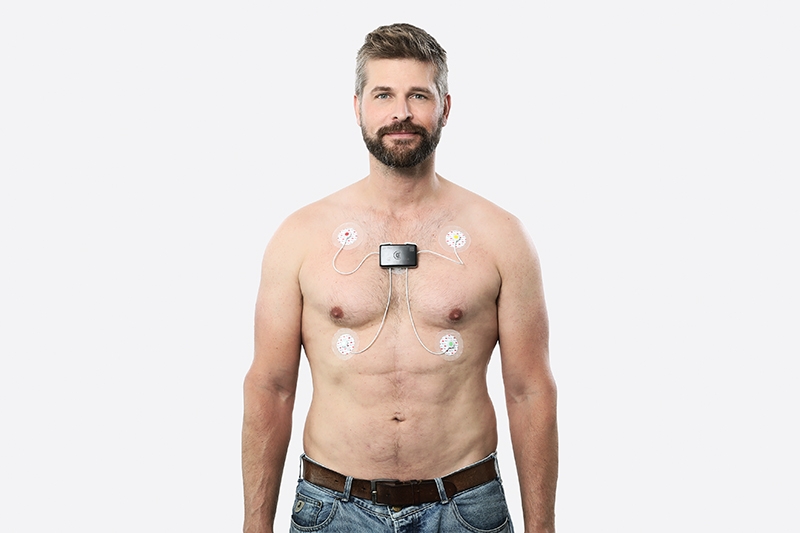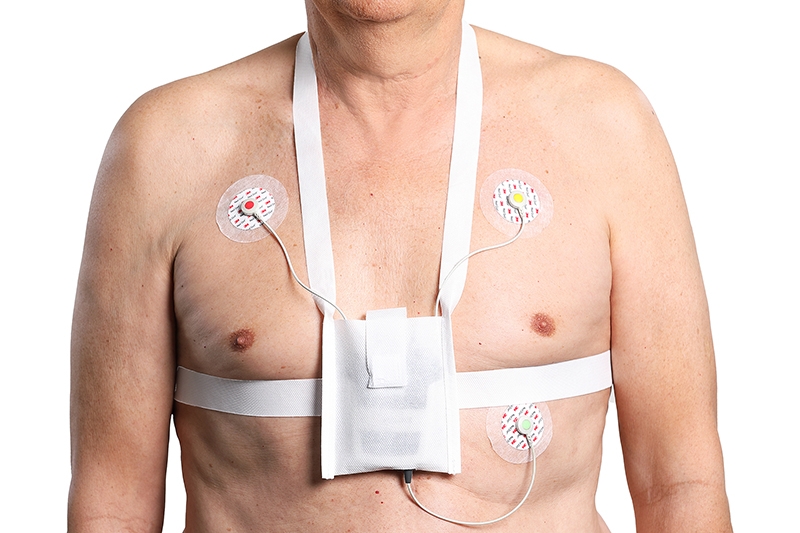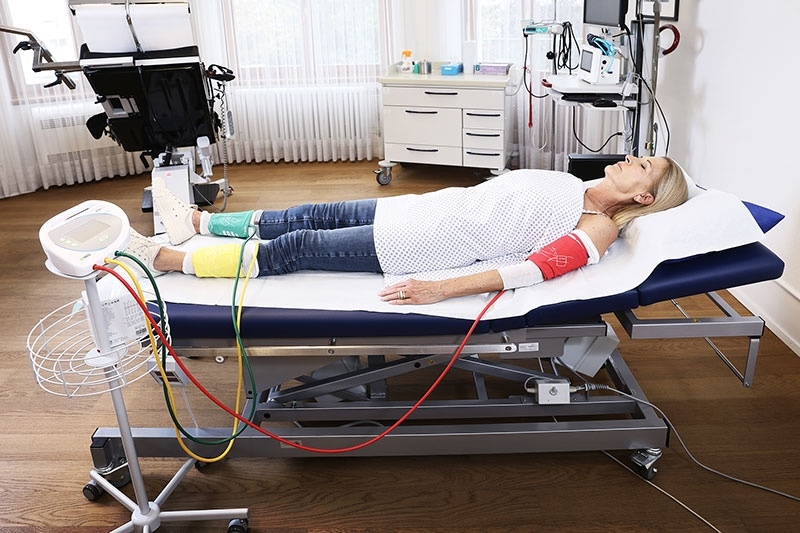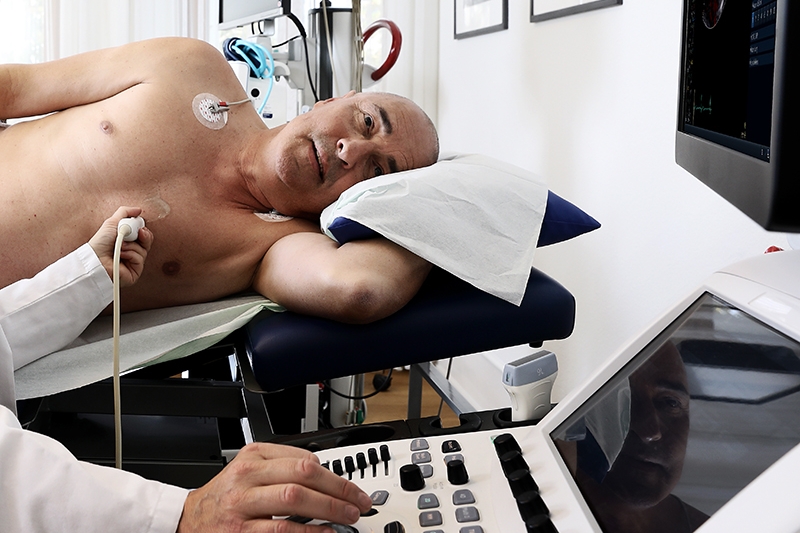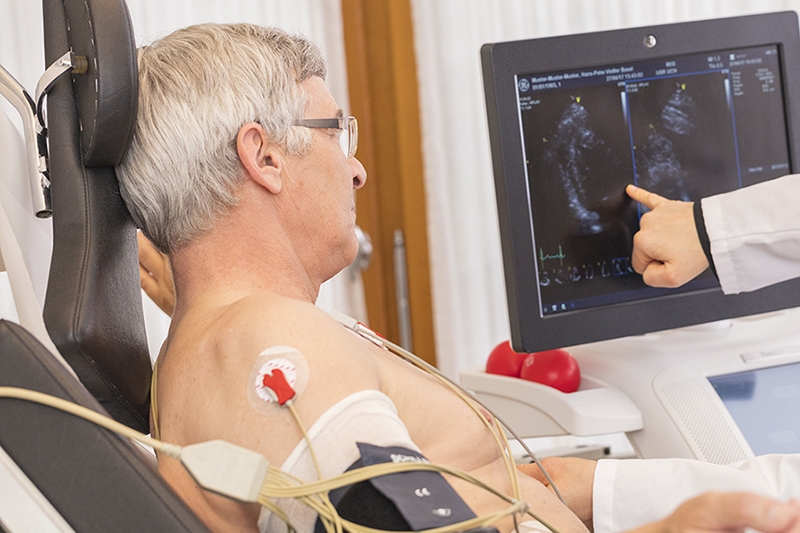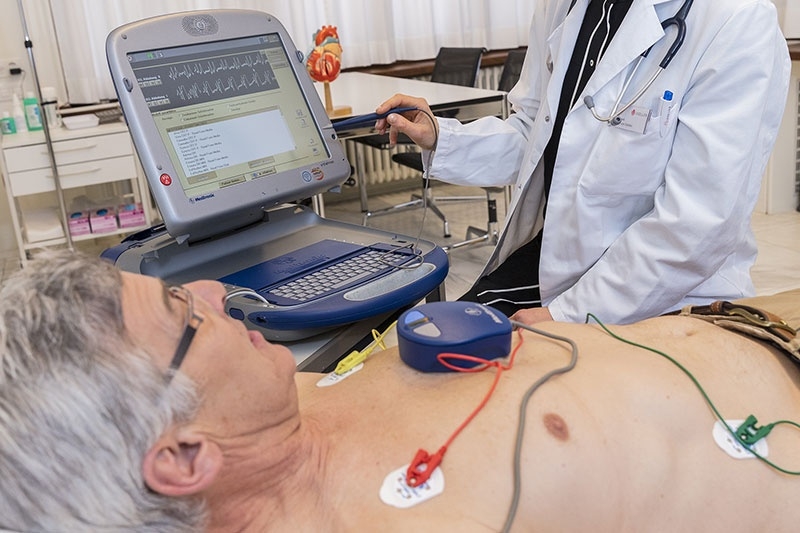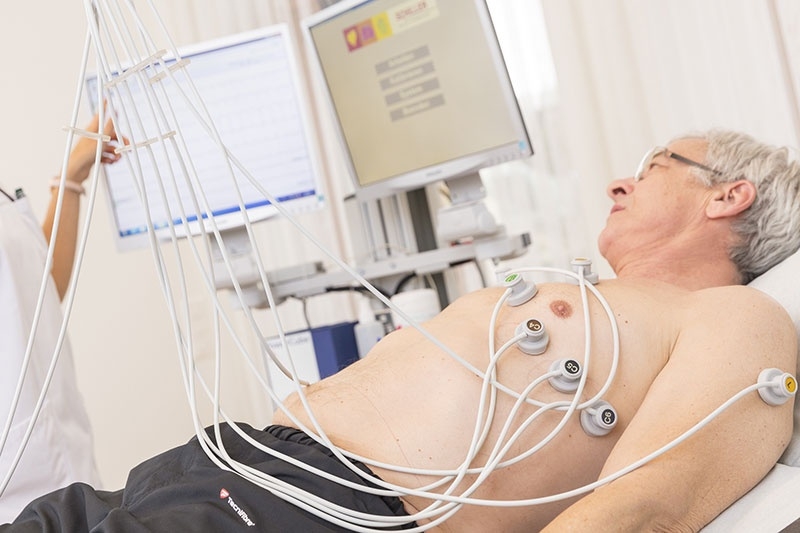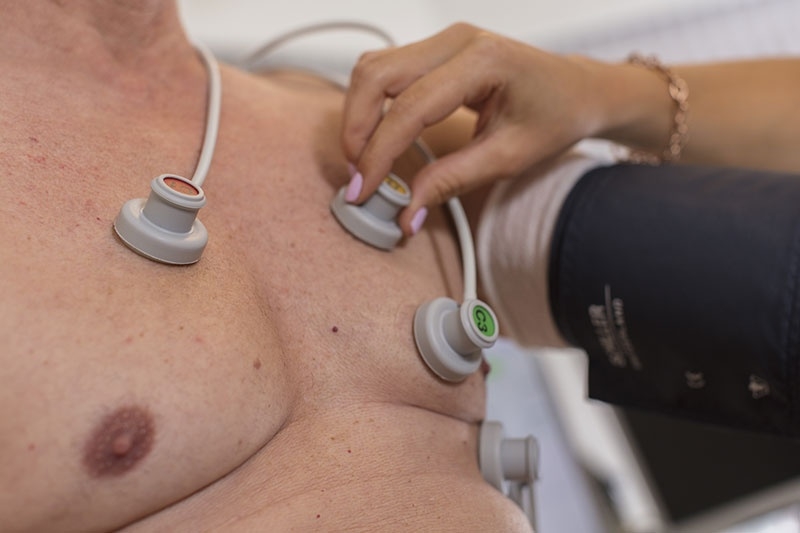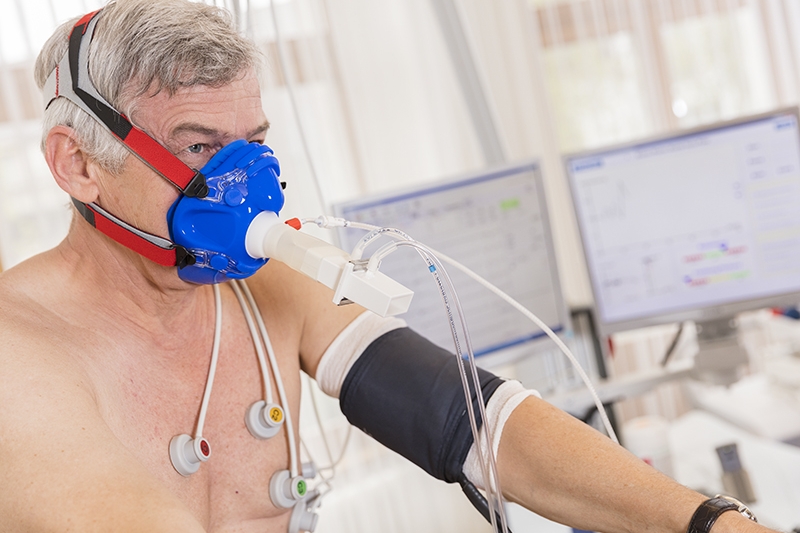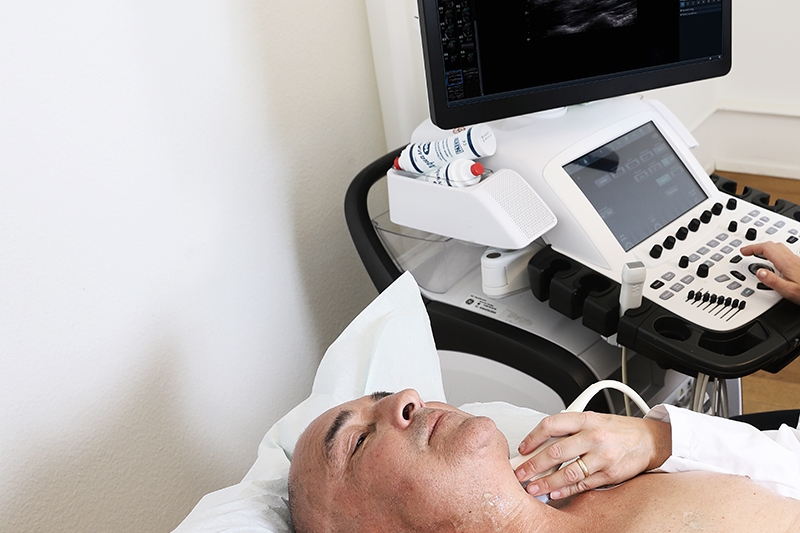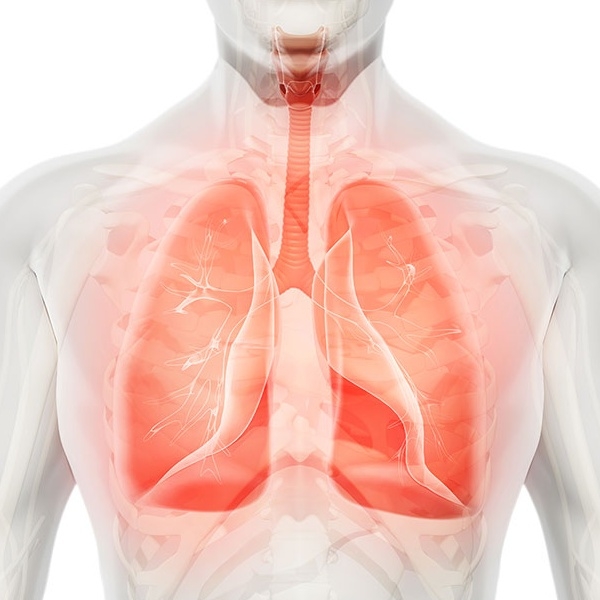The heart sets the rhythm. If you are worried about your heart, we are here for you. At our practice Herz-Lungen-Praxis, a team of specialists awaits you. They will give you and your health their full attention. and use state-of-the-art technology for support during diagnosis and treatment. With us, you will always speak to the same trustworthy doctor. We respond to your needs and concerns and respect your desire for privacy.
Prevention is key
A personal check-up provides you with preventive information about your state of health. Early detection and treatment of high blood pressure, for example, is an important preventive measure.
If other diagnostic measures are necessary – such as a cardiac catheter, CT scan or MRI – you and the referring doctor will make arrangements for these to be scheduled at a hospital of your choice. We maintain good relationships with all the surrounding hospitals.
We take time to listen
The patient consultation is central to our work. We respond thoroughly to your questions and concerns. Since information about pre-existing medical conditions also helps us make a diagnosis, please bring existing medical documents with you to your appointment. You are welcome to bring a companion to accompany you. We will find the path that is right for you. It is important to us that you are actively involved in making decisions about your care.
Women and men with the same illness often display different symptoms. We take this into consideration. We can perform urgent exams at short notice, and we provide continuous care for chronically ill patients. It's your health, after all.


